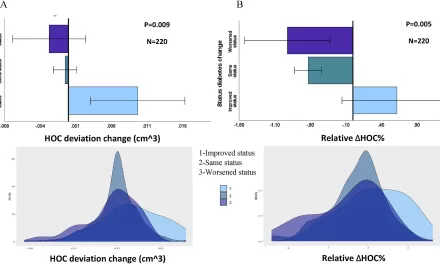August 7, 2024 – In a pressing call to action, health experts emphasized the urgent need for public awareness and government intervention to combat the growing crisis of non-communicable diseases (NCDs) such as obesity, diabetes, and hypertension in India.
India is witnessing a significant surge in these conditions, which are primary contributors to severe health issues like heart diseases, strokes, and cancers. The recent findings published in the journal Nature Medicine highlight how the westernization of diets—marked by the increased consumption of processed foods, refined carbohydrates, and unhealthy fats—has exacerbated global health problems by increasing gut microbial vulnerability, chronic inflammation, and chronic diseases. These dietary changes primarily impact the cardiovascular system, systemic metabolism, and the gut.
“Changing dietary patterns and eating more industrial food products are responsible for increasing obesity and diabetes, accounting for 56 percent of deaths in India,” said Arun Gupta, a paediatrician, and NAPi convener, in an interview with IANS. He attributed this alarming trend to “seductive and misleading advertising” and advocated for stringent regulations to control the food industry to prevent a sicker population.
The study conducted by researchers from the Medical University of Innsbruck in Austria explored the connections between diet and disease, particularly focusing on obesity, type 2 diabetes, cardiovascular diseases, gut and liver diseases, and solid malignancies. The researchers argued for immediate action from healthcare professionals and societies to mitigate the detrimental effects of Western dietary habits and promote sustainable changes for improved health outcomes.
Rajeev Jayadevan, a gastroenterologist based in Kochi, suggested that the term “Western diet” might be misleading and stigmatizing. Instead, he recommended using more precise terms like “convenience diet,” “industrialized diet,” or “urban diet.” “It is not a question of the Western diet, but rather dietary indiscretion driven by peer influence, advertising, availability, affordability, and convenience,” he said. Jayadevan explained that this diet involves consuming more ultra-processed foods, high-calorie beverages, and fatty snacks high in sugar and salt, rather than a balanced diet rich in fruits, vegetables, whole grains, eggs, legumes, fish, and lean meats.
Excessive consumption of ultra-processed foods, unhealthy fats, and high salt and sugar, combined with a sedentary lifestyle, is a well-known recipe for chronic illnesses. Jayadevan stressed the importance of educating children about healthy eating patterns and the consequences of poor dietary choices. He also called for further studies on the effects of pesticides, plastics, reheated oil, various pollutants, food coloring agents, and preservatives.
Gupta proposed that the government introduce legislation mandating “warnings on the front of the pack” and restricting the marketing and advertising exposure of unhealthy foods to curb rising obesity and diabetes.
The consensus among experts is clear: a multi-faceted approach involving public education, stringent regulations, and comprehensive research is essential to tackle the escalating health crisis posed by unhealthy dietary practices.












